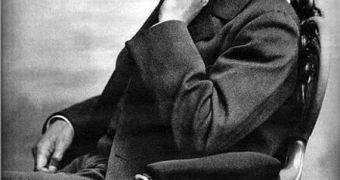Over the past few years, an eminent group of scientists has argued that the range of Nobel Prizes awarded every year should be increased, so as to reflect the new fields of science. The prizes, which are the highest a scientist can get, are currently only awarded for a few categories, and experts say that these do not reflect the full extent of modern science. In response, senior officials from the Nobel Foundation say that no new prizes will be created, and that Alfred Noble's legacy will be preserved the way he intended it to, the BBC News reports.
In an open letter ten top scientists sent to the Foundation, it is argued that domains such as public health, environmental science, or ecology are not well represented with prizes, and that important contributions to humankind's knowledge are being ignored and unrecognized. The document was published in the New Scientist magazine. Sir David King, the former science advisor for the United Kingdom government, was also among the scientists who signed the letter. He argues, some say with merit, that the scientific world today has little to do with that of the early 20th century, when Nobel Prizes started being awarded.
“We're faced with a whole bunch of new challenges simply not foreseen when the Nobel prizes were formulated. When Alfred Nobel signed his will in 1895, he could not have anticipated threats such as climate change and HIV/AIDS,” King explains. He also speaks about former US vice-president Al Gore's prize, which was awarded to the American official for Peace, in spite of the fact that his work was conducted on global warming. “The peace prize has become a kind of catch-all. There needs to be a specific prize associated with contributions towards sustainability,” King tells Radio 4's PM program.
“We have different views to these scientists about the immobility of the prizes. They say in their letter than Alfred Nobel couldn't have foreseen HIV or climate change, but in both of these areas, prizes have been recently awarded. The prizes do cover what is going on. Anybody can wish for more categories, but the categories are there in the will. But the substance covered is developing and moving,” the Executive Director of the Nobel Foundation, Michael Sohlman, adds for the same radio program. The Nobel Prizes started being awarded in 1901, and are still considered to be the most prestigious scientific awards on the planet. They have five categories: physics, chemistry, physiology / medicine, literature, and peace.

 14 DAY TRIAL //
14 DAY TRIAL //